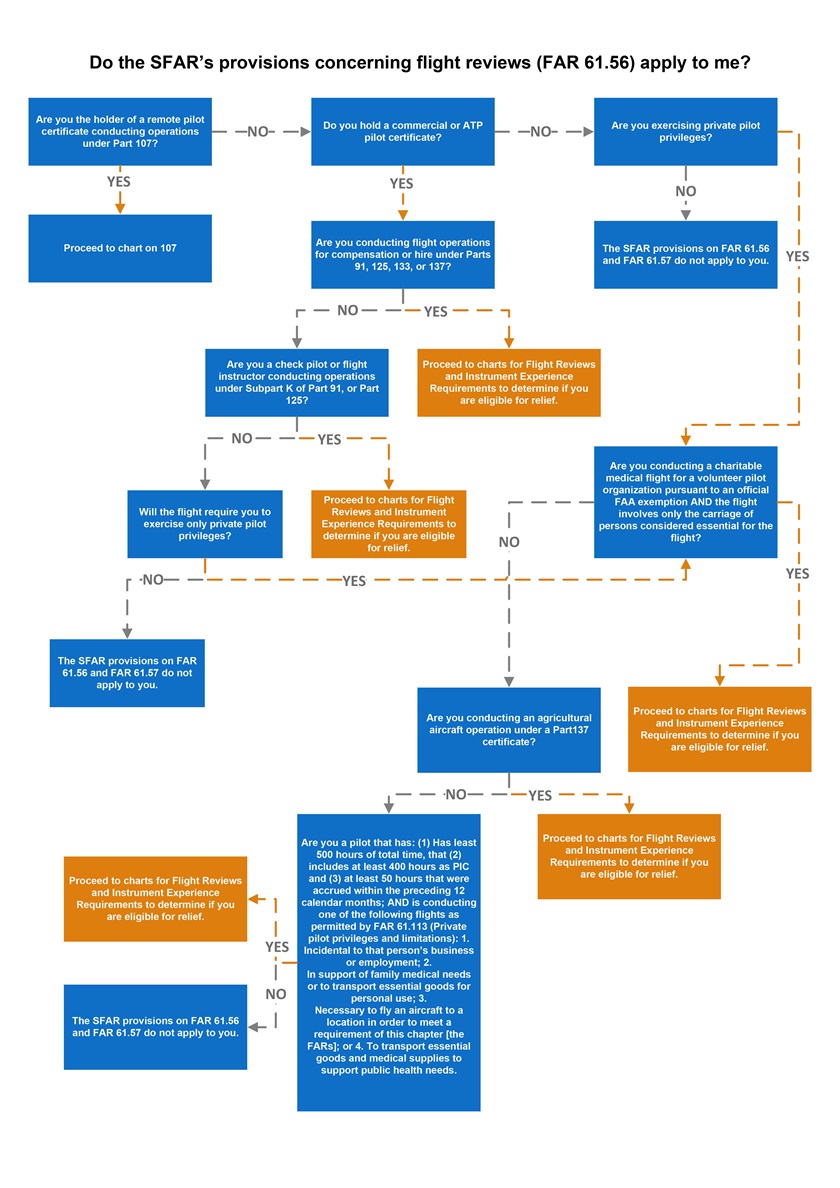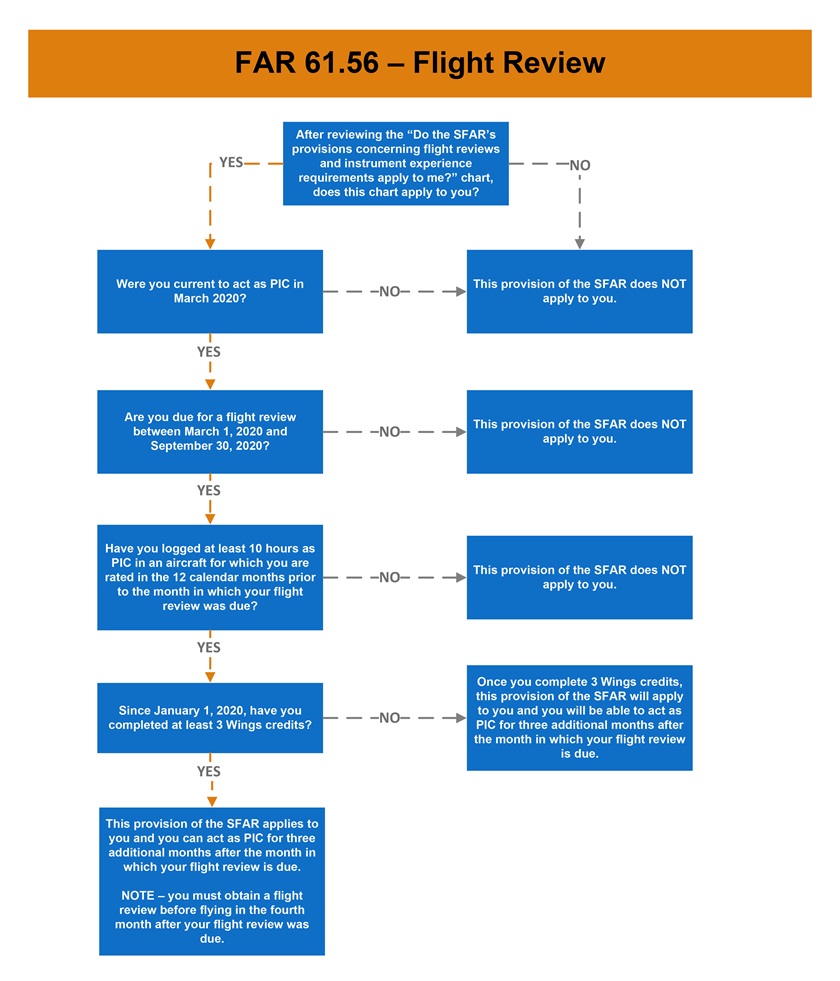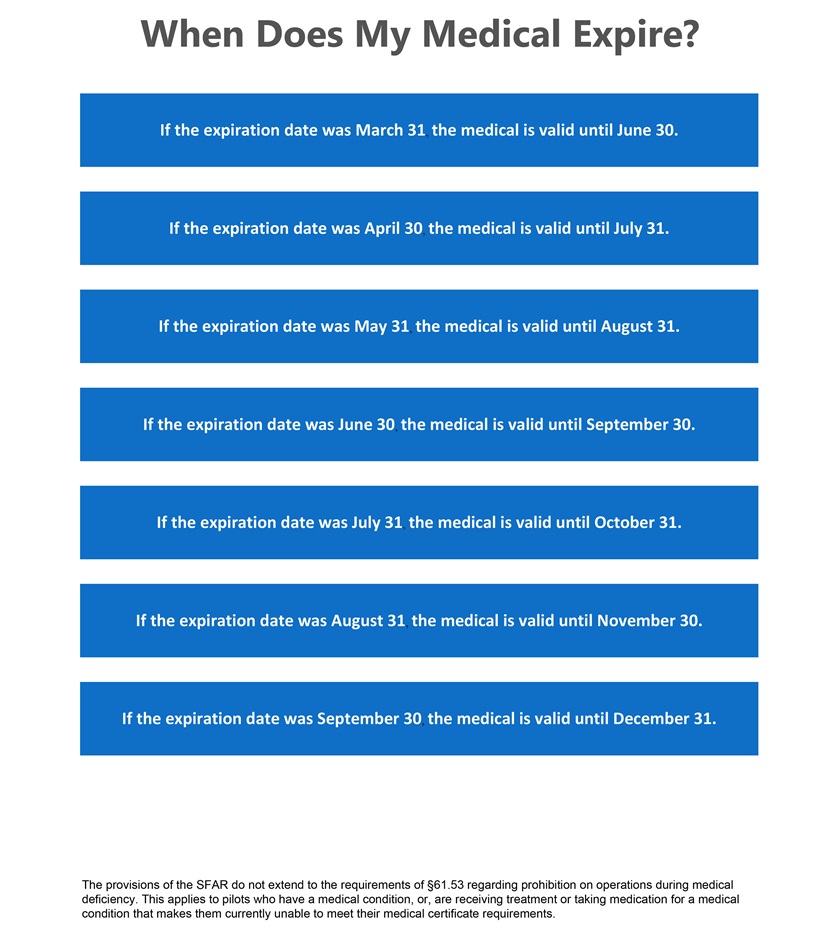Urgent: Read this before flying!
Use caution before flying during coronavirus pandemic
Has your medical certificate, flight review, or instrument currency expired? If so, read this to determine whether you can fly.

The FAA’s 94-page special federal aviation regulation on flying during the coronavirus pandemic is complicated, and pilots need to read it carefully to determine what does and does not apply to their individual situations.
The flowcharts and decision guide below are offered to help you avoid getting crosswise with the rules—or safety—and to steer you clear of bad advice you might get by word of mouth or from other informal sources. Some of the provisions, especially those related to flight reviews and instrument proficiency, apply only to those who plan to fly five types of specific operations for which the FAA has determined relief is appropriate under the SFAR. However, medical certificate extensions have a different set of qualifications that depend on dates, not the type of flight operation. Confusing, isn’t it.
Your first step is to figure out whether the SFAR’s provisions concerning flight review or instrument currency apply to your case. If they do, proceed to page two of the flowchart and follow the “yes” column on the flowchart. If you end up in the “no” column, it means the SFAR doesn’t apply to you and you must comply with the same flight-review and instrument currency rules that you have followed before.
Has your flight review expired, and does the SFAR’s provisions apply to your case?

The first question to ask yourself is, “Were you current to act as pilot in command in March 2020?” If the answer is yes, the next step is to check your flight review expiration date. If the expiration date falls between March 2020 and June 2020, next determine whether you have flown 10 hours as PIC in an aircraft for which you are rated in the 12 calendar months prior to the month when your flight review was due. (Again, a “no” answer means you would continue with your usual flight review schedule.)
Don’t despair if the answer is no. In this case, you can still acquire the credits, which would put you back in the “yes” group. In that case, the SFAR allows you to act as PIC for three additional months after the month in which your flight review is due. Many of the AOPA Air Safety Institute’s online courses qualify for Wings program credit.
Reminder: This regulatory relief “applies only to persons conducting specific operations for which the FAA has determined relief is appropriate” in the SFAR. (Before flying in that fourth month after the month when your flight review was due, you must have a new flight review.) So, a private pilot with a flight review that expires in April who meets the qualifying criteria can use this SFAR to fly one of the five permitted types of flight operations, but not for other types of flight operations not listed in the SFAR.
Has your instrument currency expired?

Instrument pilots who plan to exercise their privileges to conduct “specific operations for which the FAA has determined relief is appropriate” under the SFAR must also verify their recency of experience. Again, the steps can be tracked on the flowchart, and if at any time you find yourself in the “no” column, it means you must get an instrument proficiency check as would usually be the case at this point in your recency-of-experience cycle.
However, if you are among instrument pilots who have logged at least three instrument approaches (actual or simulated) within the six calendar months preceding the month of the (planned) flight, read on: Next you would check whether you have performed and logged all tasks required by FAR 61.57(c)(1) within the nine calendar months preceding the month of the flight.
No? Thank you for playing.
Yes? Then the SFAR applies and you may continue to act as PIC of an aircraft under IFR or in weather conditions less than the minimums prescribed for VFR until June 30, 2020—for those five types of operations outlined in the SFAR. After June 30, you must meet all requirements of FAR 61.57(c). Note that this “grace period,” as the FAA calls it, does not extend the additional six-month timeframe to regain your currency.
Has your first, second, or third class medical certificate expired?

If you have navigated one or more of the scenarios posed above, this one will be a cinch.
If your first, second, or third class medical expired or expires between March 31 and May 31, its validity is extended to June 30—no matter what type of flying you do.
If your medical’s expiration date as issued is outside the March 31 to May 31 date range, your usual renewal timetable applies and no action is needed.
BasicMed? It will be 2021 before the first pilots to have begun flying under BasicMed will need to see their issuing doctor again, so the SFAR does not address BasicMed. BasicMed pilots who need to complete the online course that is required every 24 months can do so on our website.
Now that you have followed these steps and have kept yourself on the good side of the SFAR, two tasks remain: One is to contact your insurance representative and get written confirmation that your coverage remains in force if you fly under the SFAR.
For those pilots who live in states or municipalities that have stay-at-home orders in effect for health reasons, the final step is to check the status of those orders so you don’t get a ticket for being on the road for the wrong reason as you drive to the airport.



